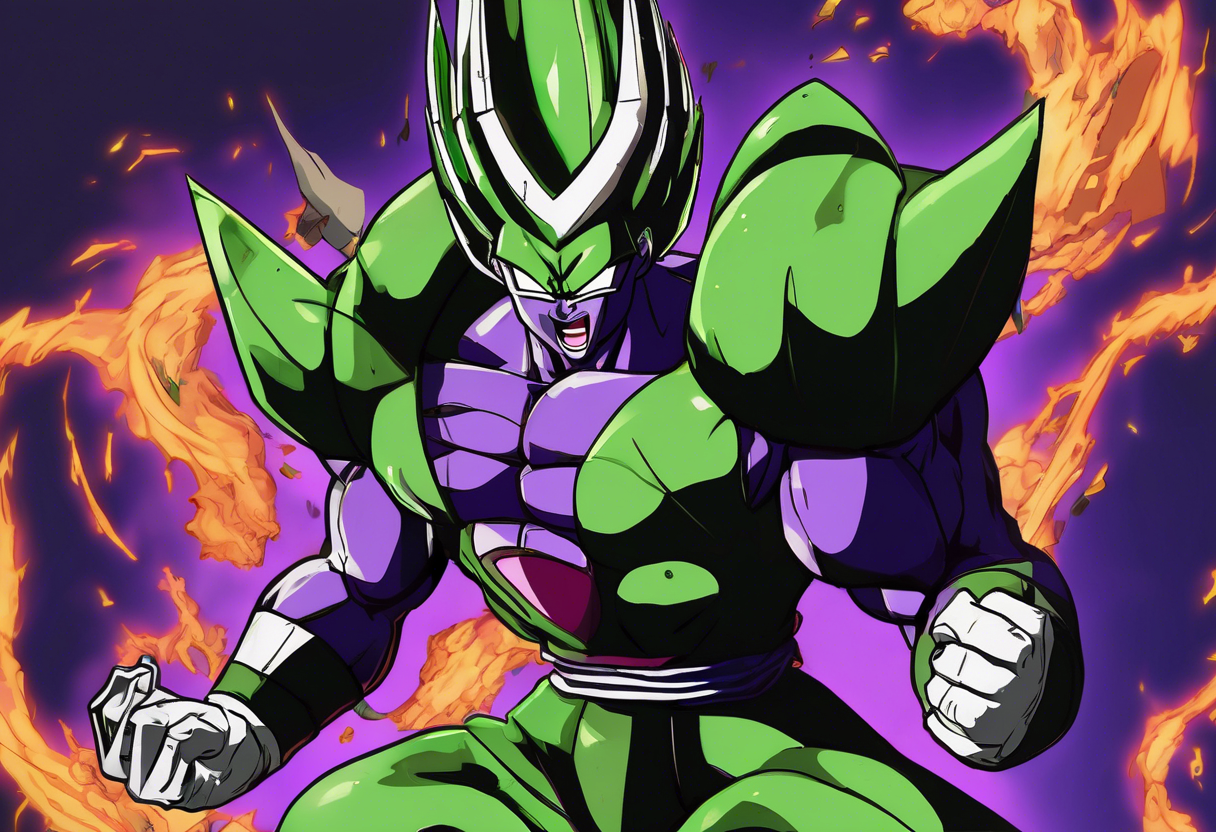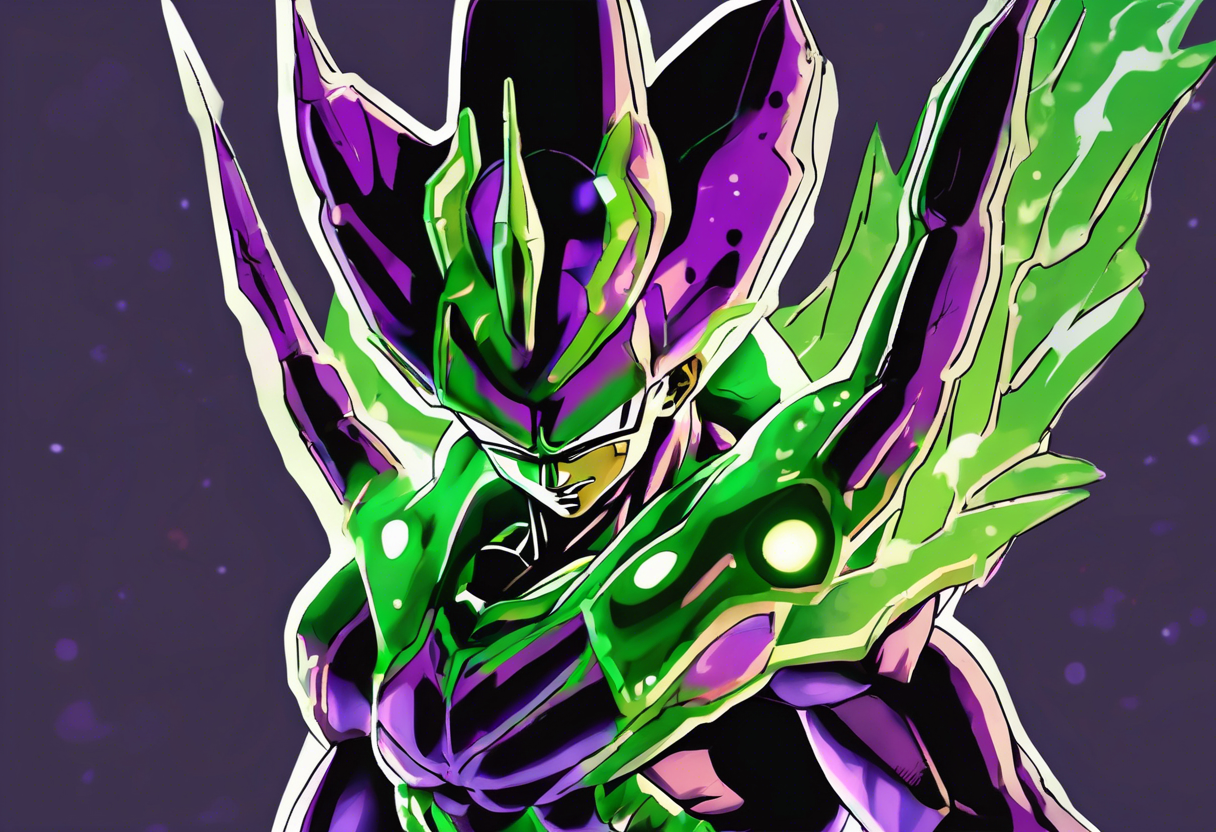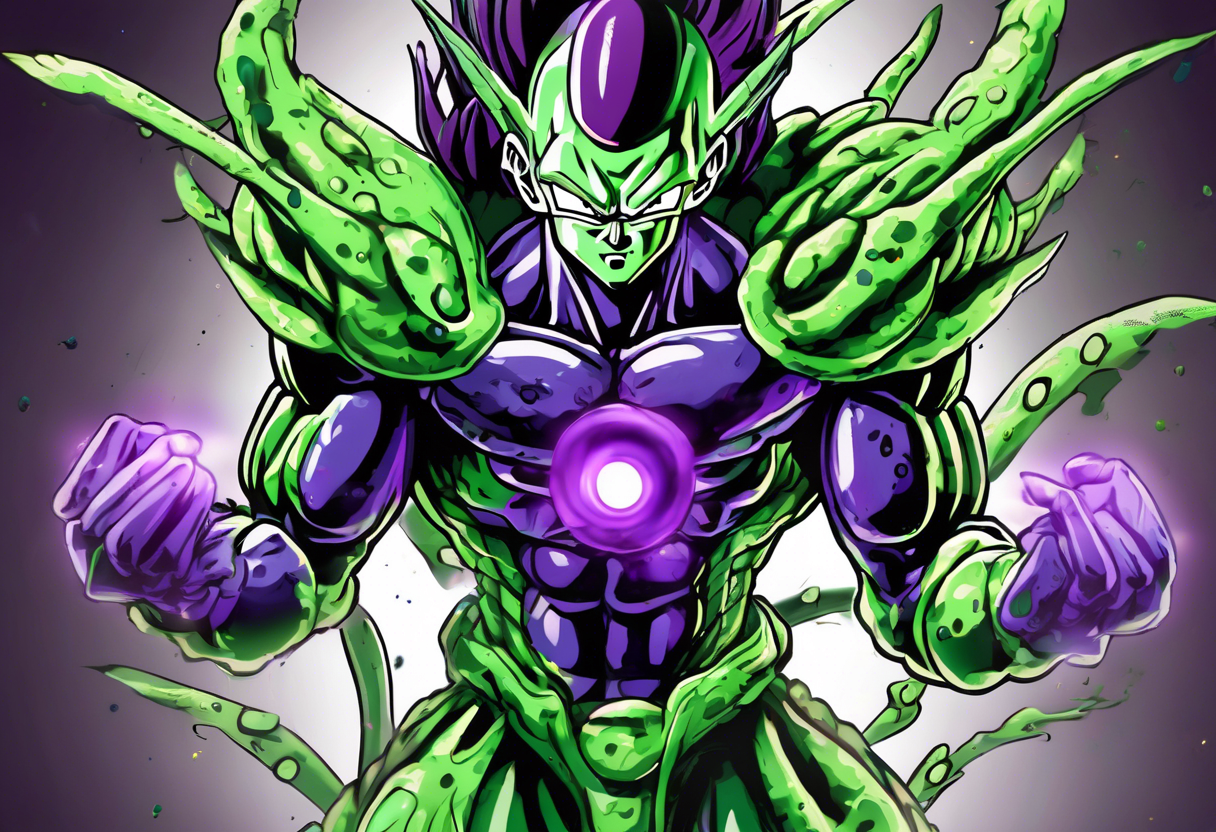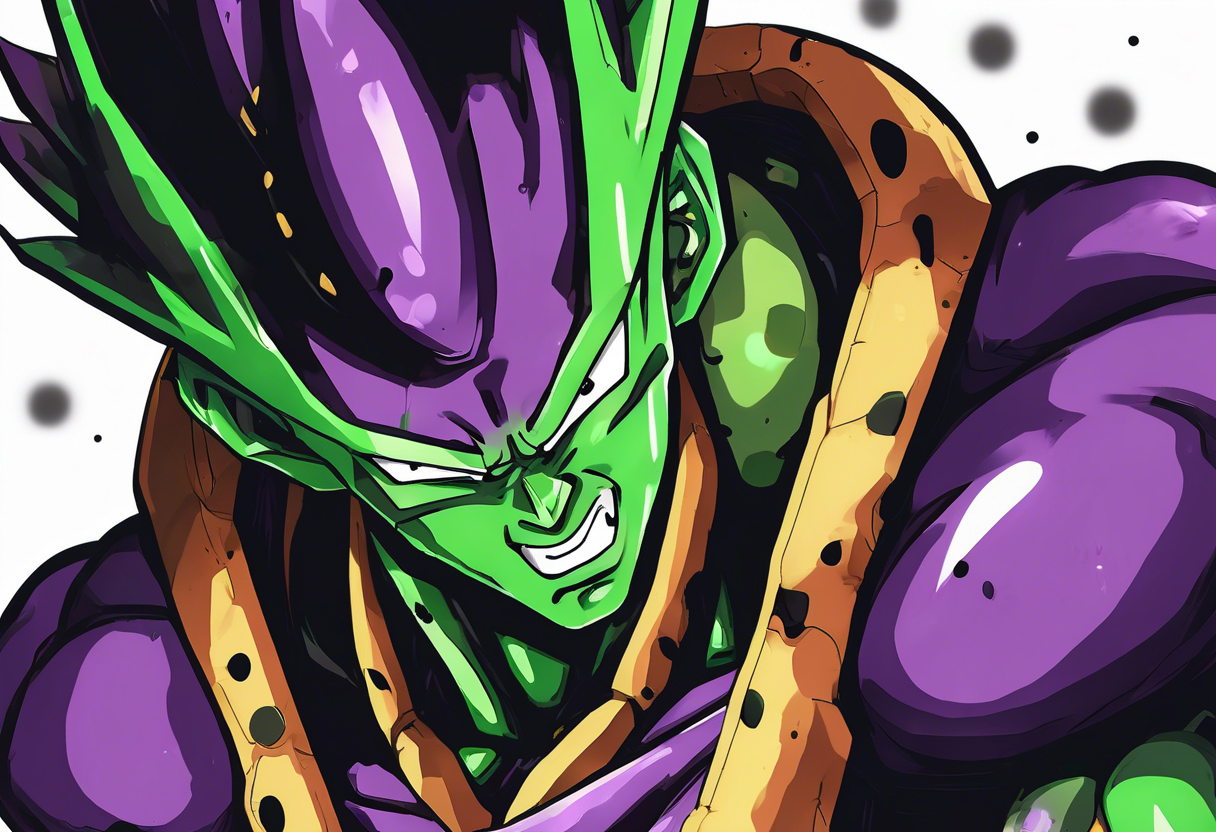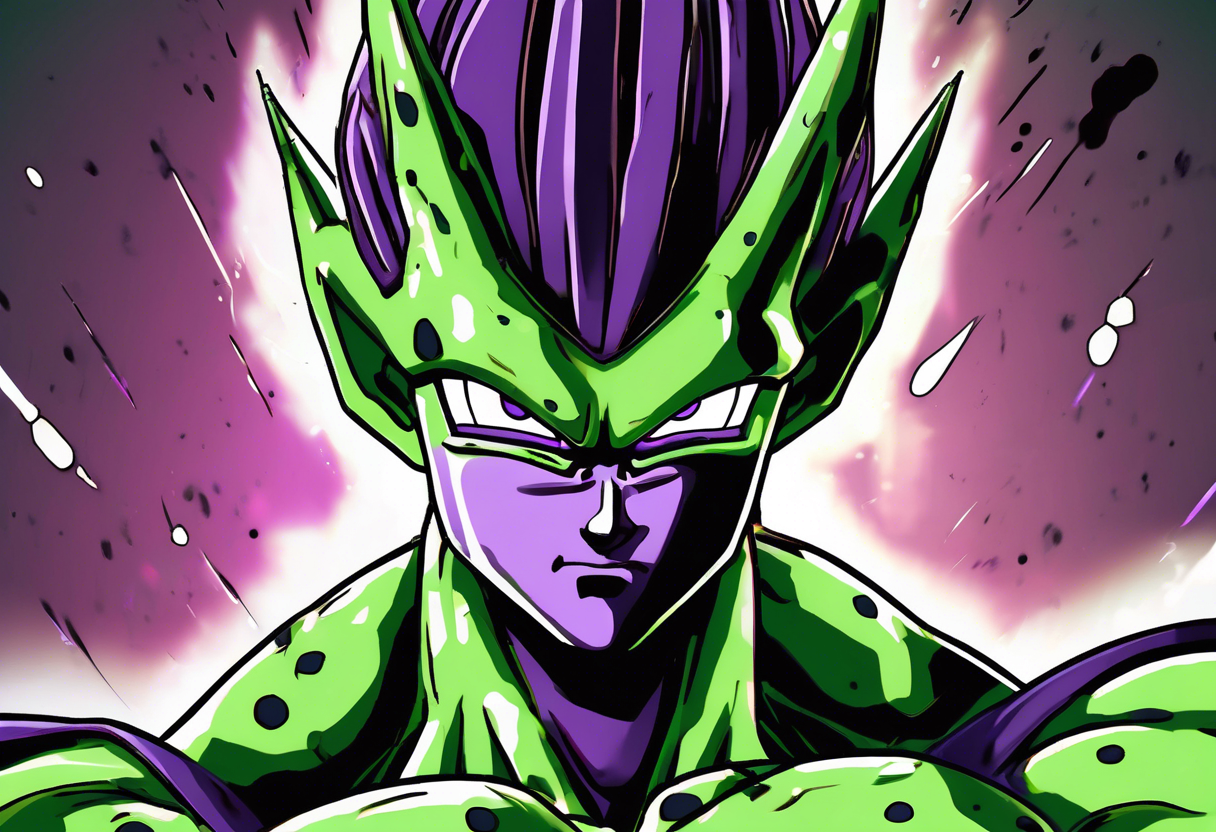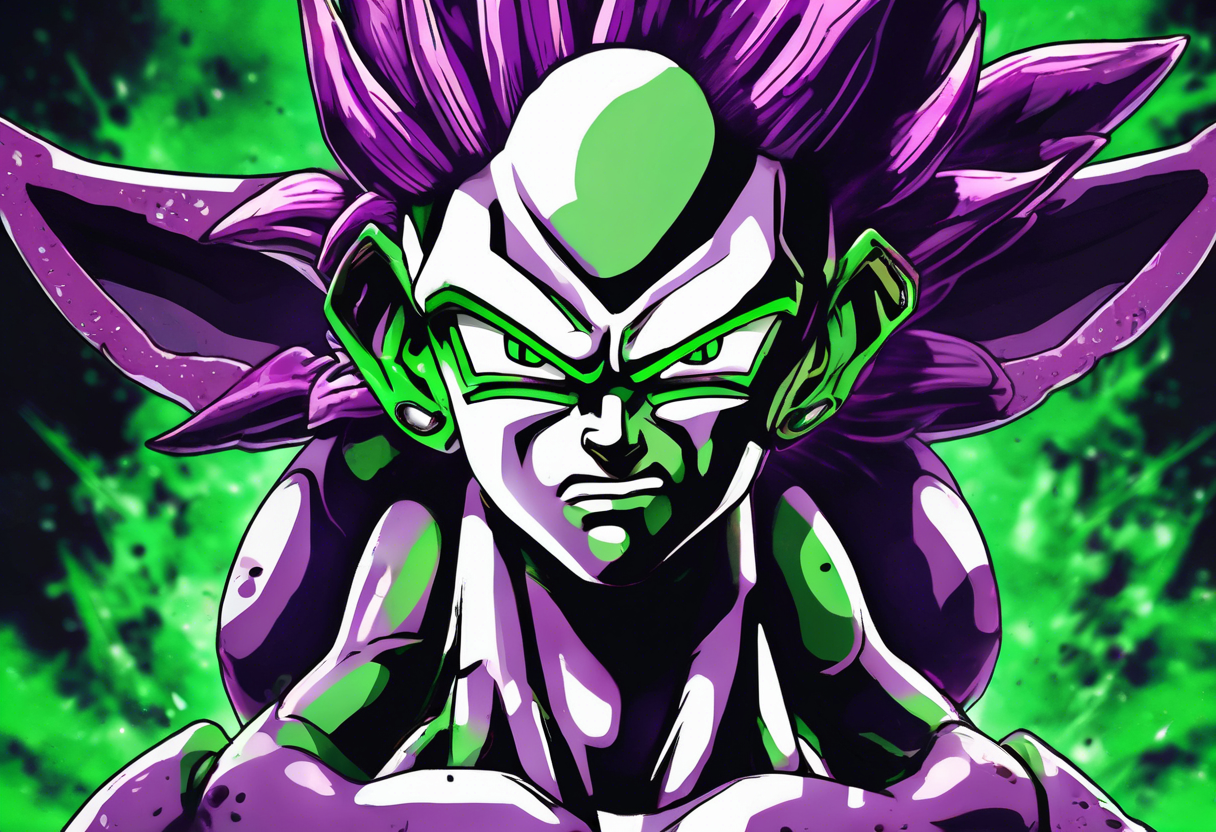Contents
Introduction
Cell, known as セル (Seru) in Japanese, is a pivotal and complex villain in the renowned anime and manga series Dragon Ball Z, created by the esteemed Akira Toriyama. First appearing in chapter #361 of the Dragon Ball manga, titled "The Mysterious Monster, Finally Appears!!" on February 16, 1992, Cell is an artificial life form, specifically a "bio-android," designed by the sinister Dr. Gero[2][4].
Cell’s creation involves the use of cell samples from several major characters in the series, including Goku, Vegeta, Piccolo, Frieza, and others. This genetic diversity grants Cell a unique set of abilities and traits, making him one of the most formidable foes in the Dragon Ball Z universe. His primary goal is to become the perfect being by absorbing Androids 17 and 18, which are also creations of Dr. Gero[2][4].
Cell’s significance in the narrative is multifaceted. He serves as the main antagonist of the Android Saga, bringing a new level of complexity and depth to the story. His character embodies a blend of traits from his genetic contributors, making him a fascinating and dynamic character. This blend of characteristics, particularly his mix of Goku’s laid-back attitude and Frieza’s cold, sadistic personality, adds richness to his portrayal and interactions within the story[1][4].
Role in the Story
Cell’s storyline is intricately woven into the fabric of the Dragon Ball Z narrative. He travels back in time to a period before the events of the Android Saga, aiming to absorb Androids 17 and 18 to achieve his perfect form. This journey involves several key events and conflicts.
Initially, Cell appears in his imperfect form, where he is smart, tactical, and frighteningly efficient in battle. He seeks out Androids 17 and 18, leading to a series of intense confrontations with the Z Fighters. Upon absorbing Android 17, Cell transforms into his semi-perfect form, significantly increasing his power. However, it is not until he absorbs Android 18 that he reaches his perfect form, becoming one of the most powerful beings in the series[2][4].
One of the most notable aspects of Cell’s storyline is the Cell Games, a martial arts tournament he hosts to test his strength against the Z Fighters. This event is a re-creation of the World Tournament, a significant part of Goku’s adventures, highlighting Cell’s connection to Goku’s genetic makeup and his desire for strong opponents[1][4].
Cell’s relationships with other characters are also pivotal. His interactions with Gohan, in particular, are central to the plot, as their battle is one of the most iconic and emotionally charged moments in the series. Additionally, his dynamic with Frieza, another major villain, reflects his genetic heritage and adds depth to his character[1][5].
Character Analysis
Cell’s personality is a compelling blend of traits from his genetic contributors. His Goku side is evident in his laid-back attitude and desire to fight stronger opponents, which is showcased through his hosting of the Cell Games. This aspect of his personality also includes a leniency towards fools, such as Hercule, mirroring Goku’s light-hearted and forgiving nature[1].
On the other hand, Cell’s Frieza side is characterized by his cold, sadistic, and elegant personality. This is evident in his desire to see fear in others and his polite yet menacing mannerisms. This duality makes Cell a complex and intriguing character, as it balances his brutal nature with a level of sophistication[1].
Cell’s motivations are driven by his desire for perfection and the need to prove his strength. His ability to regenerate and his immense power make him nearly invincible, but it is his strategic thinking and tactical approach to battles that truly set him apart. Despite his formidable abilities, Cell’s arrogance in his perfect form often leads to underestimating his opponents, which can be seen as a flaw in his otherwise meticulous approach to combat[1][4].
Themes and Symbolism
Cell embodies several themes and symbolic elements that are central to the Dragon Ball Z narrative. One of the primary themes is the concept of perfection and the dangers of unchecked ambition. Cell’s relentless pursuit of becoming the perfect being serves as a cautionary tale about the consequences of seeking ultimate power without moral boundaries[1][4].
Another significant theme is the exploration of identity and self. Cell’s composite nature, derived from various characters, raises questions about what it means to be an individual. His struggle to reconcile his different genetic influences with his own identity adds a layer of psychological depth to his character[1][5].
The Cell Games also symbolize the idea of spectacle and the public’s fascination with violence and competition. By hosting a tournament to test his strength, Cell highlights the darker aspects of human nature and the allure of destructive entertainment[1].
Cultural Impact
Cell has had a profound cultural impact since his introduction. He is widely regarded as one of the most compelling and complex villains in anime history. His unique design and abilities have made him a fan favorite, and his battles are often cited as some of the most memorable moments in Dragon Ball Z[2][4].
In adaptations and spin-offs, Cell has been portrayed consistently with his original character traits. His appearances in video games, such as the Dragon Ball Z fighting games, have further cemented his status as an iconic character. Additionally, his influence can be seen in other anime and manga series, where similar complex villains have been created in his image[4].
Critical Reception
Cell has received widespread critical acclaim for his characterization and role in the narrative. Critics praise his complexity, noting that his blend of traits from different characters makes him a fascinating and dynamic villain. The way his personality evolves from his imperfect to perfect form has been particularly lauded, as it adds depth to his character and the story as a whole[1][5].
However, some critics argue that his perfect form makes him less compelling than his earlier forms, citing his increased arrogance and reduced tactical thinking. Despite this, Cell remains one of the most beloved and respected villains in anime, with his legacy continuing to influence new generations of fans and creators[1].
Legacy
Cell’s enduring appeal lies in his multifaceted character and the significant impact he has on the Dragon Ball Z narrative. His blend of Goku’s and Frieza’s traits, combined with his unique abilities and strategic thinking, makes him a compelling and relatable character.
In contemporary discussions, Cell is often cited as an example of a well-crafted villain, with his complexity and depth serving as a benchmark for character development. His influence can be seen in various other works, where creators strive to replicate the same level of complexity and intrigue in their own characters[1][5].

